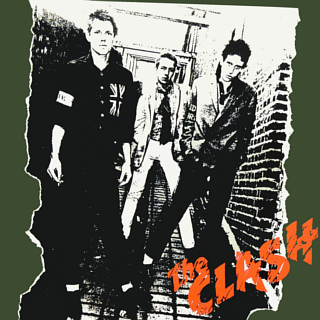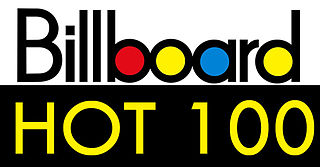
Roberta Joan "Joni" Mitchell is a Canadian singer-songwriter. Drawing from folk, pop, rock, and jazz, Mitchell's songs often reflect social and environmental ideals as well as her feelings about romance, confusion, disillusionment, and joy. She has received many accolades, including nine Grammy Awards and induction into the Rock and Roll Hall of Fame in 1997. Rolling Stone called her "one of the greatest songwriters ever", and AllMusic has stated, "When the dust settles, Joni Mitchell may stand as the most important and influential female recording artist of the late 20th century".

The Dark Side of the Moon is the eighth studio album by English rock band Pink Floyd, released on 1 March 1973 by Harvest Records. Primarily developed during live performances, the band premiered an early version of the record several months before recording began. New material was recorded in two sessions in 1972 and 1973 at Abbey Road Studios in London.

In music, a single is a type of release, typically a song recording of fewer tracks than an LP record or an album. This can be released for sale to the public in a variety of different formats. In most cases, a single is a song that is released separately from an album, although it usually also appears on an album. Typically, these are the songs from albums that are released separately for promotional uses such as digital download or commercial radio airplay and are expected to be the most popular. In other cases a recording released as a single may not appear on an album.

The terms A-side and B-side refer to the two sides of 78, 45, and 331⁄3 rpm phonograph records, or cassettes, whether singles, extended plays (EPs), or long-playing (LP) records. The A-side usually featured the recording that the artist, record producer, or the record company intended to receive the initial promotional effort and then receive radio airplay, hopefully, to become a "hit" record. The B-side is a secondary recording, although some B-sides were considered as strong as, or stronger than, the A-side and became hits in their own right.

An extended play record, often referred to as an EP, is a musical recording that contains more tracks than a single, but is usually unqualified as an album or LP. Contemporary EPs generally contain a minimum of three tracks and maximum of six tracks, and are considered "less expensive and time-consuming" for an artist to produce than an album. An EP originally referred to specific types of vinyl records other than 78 rpm standard play (SP) and LP, but it is now applied to mid-length CDs and downloads as well.

In their native United Kingdom, between 1962 and 1970, the English rock band the Beatles released 12 studio albums, 13 extended plays (EPs) and 22 singles. However, the band's international discography is complicated, due to different versions of their albums sometimes being released in other countries, particularly during their early years on Capitol Records in North America. The Beatles' discography was originally released on the vinyl format, with full-length long plays (LPs), shorter EPs and singles. Over the years, the collection has also been released on cassette, 8-track, compact disc (CD), on a USB flash drive in MP3 and 24-bit FLAC format, and on digital media streaming services. Although their output has come to include vault items and remixed mash-ups, the Beatles' "core catalogue", recorded between 1962 and 1970, comprises 213 songs, totalling approximately 10 hours of music. Additionally, they released five tracks that are different versions of previously released songs: "Love Me Do", "Revolution", "Get Back", "Across the Universe" and "Let It Be"; two tracks in German: "Komm, Gib Mir Deine Hand" and "Sie Liebt Dich"; and two tracks that are duplicates of songs included on previous albums but also included on the album Yellow Submarine: "Yellow Submarine" and "All You Need Is Love".

Robert Clark Seger is an American singer, songwriter and musician. As a locally successful Detroit-area artist, he performed and recorded as Bob Seger and the Last Heard and Bob Seger System throughout the 1960s, breaking through with his first album, Ramblin' Gamblin' Man in 1968. By the early 1970s, he had dropped the 'System' from his recordings and continued to strive for broader success with various other bands. In 1973, he put together the Silver Bullet Band, with a group of Detroit-area musicians, with whom he became most successful on the national level with the album Live Bullet (1976), recorded live with the Silver Bullet Band in 1975 at Cobo Hall in Detroit, Michigan. In 1976, he achieved a national breakout with the studio album Night Moves. On his studio albums, he also worked extensively with the Alabama-based Muscle Shoals Rhythm Section, which appeared on several of Seger's best-selling singles and albums.

The Clash is the self-titled debut studio album by English punk rock band the Clash. It was released on 8 April 1977 through CBS Records. Written and recorded over three weeks in February 1977 for £4,000, it would go on to reach No. 12 on the UK charts, and has been included on many retrospective rankings as one of the greatest punk albums of all time.

The Billboard Hot 100 is the music industry standard record chart in the United States for songs, published weekly by Billboard magazine. Chart rankings are based on sales, radio play, and online streaming in the United States.
A double album is an audio album which spans two units of the primary medium in which it is sold, typically records and compact disc. A double album is usually, though not always, released as such because the recording is longer than the capacity of the medium. Recording artists often think of double albums as being a single piece artistically; however, there are exceptions such as John Lennon's Some Time in New York City and Pink Floyd's Ummagumma and OutKast's Speakerboxxx/The Love Below. Another example of this approach is Works Volume 1 by Emerson Lake and Palmer, where side one featured Keith Emerson, side two Greg Lake, side three Carl Palmer, and side four was by the entire group.

An album is a collection of audio recordings issued as a collection on compact disc (CD), vinyl, audio tape, or another medium. Albums of recorded sound were developed in the early 20th century as individual 78-rpm records collected in a bound book resembling a photograph album; this format evolved after 1948 into single vinyl LP records played at 33 1⁄3 rpm.

Queen II is the second studio album by the British rock band Queen. It was released on 8 March 1974 by EMI Records in the UK and by Elektra Records in the US. It was recorded at Trident Studios and Langham 1 Studios, London, in August 1973 with co-producers Roy Thomas Baker and Robin Geoffrey Cable, and engineered by Mike Stone.

Abbey Road is the eleventh studio album by the English rock band the Beatles, released on 26 September 1969 by Apple Records. Named after the location of EMI Studios in London, the cover features the group walking across the street's zebra crossing, an image that became one of the most famous and imitated in popular music. The album's initially mixed reviews were contrasted by its immediate commercial success, topping record charts in the UK and US. The lead single "Something" / "Come Together" was released in October and topped the US charts.

Jonathan Smith, better known by his stage name Lil Jon, is an American DJ, songwriter, and record producer based in Atlanta, Georgia. He was the lead frontman of the multi-platinum selling rap group, Lil Jon & The East Side Boyz and was instrumental in the emergence of the hip/hop subgenre crunk. He is credited with bringing the genre into mainstream success, producing Top 10 Billboard Hot 100 singles "Get Low," "Goodies," "Cyclone," "Freek-a-Leek," and "Yeah!". "Yeah!" won a Grammy Award for Best Rap/Sung Performance. Lil Jon is also a frequent collaborator with friend and fellow rapper Pitbull. In 2013, Lil Jon collaborated with DJ Snake and released the EDM multi-platinum hit, "Turn Down for What," that won Billboard Music Award for Top Dance/Electronic Song. The music video for the single, released in 2014, was nominated for a Grammy Award for Best Music Video, and has been viewed over 900 million times on YouTube as of October 2019. As of 2016, Lil Jon is listed as one of the Top Billboard Music Award Winners of All Time. In 2019, Lil Jon achieved his 8th #1 on Billboard’s Rhythmic Chart as a songwriter on the song "My Type" by Sacramento rapper Saweetie.

Yellow Submarine is the tenth studio album by English rock band the Beatles, released on 13 January 1969 in the United States and on 17 January in the United Kingdom. It was issued as the soundtrack to the animated film of the same name, which premiered in London in July 1968. The album contains six songs by the Beatles, including four new songs and the previously released "Yellow Submarine" and "All You Need Is Love". The remainder of the album is a re-recording of the film's orchestral soundtrack by the band's producer, George Martin.

Pink Floyd were an English rock band formed in London in 1965. Gaining a following as a psychedelic pop group, they were distinguished for their extended compositions, sonic experimentation, philosophical lyrics and elaborate live shows, and became a leading band of the progressive rock genre. They are one of the most commercially successful and influential bands in popular music history.
"Both Sides, Now" is one of the best-known songs of Canadian singer-songwriter Joni Mitchell. First recorded by Judy Collins, it appeared on the US singles chart during the fall of 1968. The next year it was included on Mitchell's album Clouds. It has since been recorded by dozens of artists, including Frank Sinatra, Willie Nelson, Gang of Youths, and Herbie Hancock. Mitchell herself re-recorded the song, with an orchestral arrangement, on her 2000 album Both Sides Now.

Five Finger Death Punch, also abbreviated as 5FDP or FFDP, is an American heavy metal band from Las Vegas, Nevada, formed in 2005. The band's name comes from kung fu cinema. The band originally consisted of vocalist Ivan Moody, guitarist Zoltan Bathory, guitarist Caleb Andrew Bingham, bassist Matt Snell, and drummer Jeremy Spencer. Bingham was replaced by guitarist Darrell Roberts in 2006, who was then replaced by Jason Hook in 2009. Bassist Matt Snell departed from the band in 2010, and was replaced by Chris Kael in 2011. Spencer then departed the band in 2018 due to re-occurring back issues, and was replaced by Charlie Engen, making guitarist Bathory the only remaining original member of the band.

Jason Joel Desrouleaux, better known by his stage name Jason Derulo, is an American singer, songwriter, and dancer. Since the start of his solo recording career in 2009, Derulo has sold over 30 million singles and has achieved eleven Platinum singles, including "Wiggle", "Talk Dirty", "In My Head", and "Whatcha Say".
The Independent Albums chart ranks the highest-selling independent music albums and extended plays (EPs) in the United States, as compiled by Nielsen SoundScan and published weekly by Billboard magazine. It is used to list artists who are not signed to major labels. Rankings are compiled by point-of-purchase sales obtained by Nielsen, and from legal music downloads from a variety of online music stores. The chart began in the week of December 2, 2000.
















